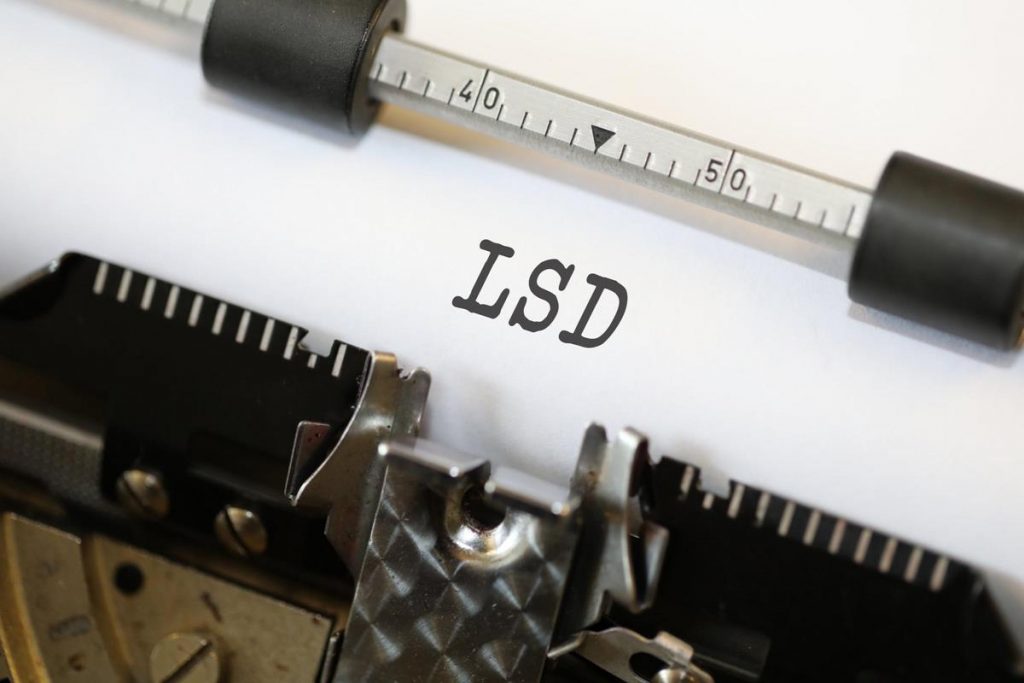
Evidently meth is a gateway drug … for publishing misconduct.
Researchers in China have lost a 2019 paper on how LSD can damage eyesight because they’d lifted much of the paper from an article that had appeared the year before in a different journal — about methamphetamine.
The retracted article, “Long-term systemic treatment with lysergic acid diethylamide causes retinal damage in CD1 mice,” appeared in Human & Experimental Toxicology. According to the article:
As a classical hallucinogen with high potential for abuse, lysergic acid diethylamide (LSD) can cause long-lasting abnormalities in retina, but little is known about the exact mechanism. This study was to investigate effects of long-term systemic treatment of LSD at low dose on retinal damage and understand the underlying mechanisms. CD1 mice were treated intraperitoneally with 0.1 mg/kg or 0.2 mg/kg LSD daily for 2 months, mice treated with saline as negative control. …
Results demonstrated that 2 months treatment with LSD caused retinal damage, evidenced by decreased ERG response and increased apoptotic photoreceptor cells through increasing oxidative stress and inflammatory response. Our study indicated that long-term systemic administration of LSD caused neurotoxic effects on retinas of CD1 mice, suggesting the potential mechanisms for the retina damage caused by LSD abuse.
But the article turned out to be the publishing equivalent of trying to pass of a pinch of oregano for a dime-bag of weed. As the retraction notice explains:
At the request of the Journal Editor and SAGE Publishing, the following article has been retracted.
J Jiang and H Xu. Long-term systemic treatment with lysergic acid diethylamide causes retinal damage in CD1 mice. Human and Experimental Toxicology 2019; 38(3): 347-355. DOI: 10.1177/0960327118814162
The above paper has substantial unreferenced overlap with the following paper:
Haojiang Yang, Liming Tao, Lin Li. Long-Term Systemic Treatment With Methamphetamine Causes Retinal Damage in CD1 Mice. International Journal of Toxicology2018; 3(6): 448-456. DOI: 10.1177/1091581818809356
The abstract of the meth paper reads:
As a powerful psychostimulant with high potential for abuse, methamphetamine (Meth) could cause long-lasting abnormalities in retinas. The purpose of this study was to investigate the effects of systemic administration of Meth at low dose on retinal damage and understand the underlying mechanisms of pathology. CD1 mice were treated with 0.5 mg/kg or 1 mg/kg Meth by intraperitoneal injection daily for 2 months, mice treated with saline were used as negative control. …
Results demonstrated that retinal damage was caused by Meth treatment after 2 months, evidenced by loss of rod photoreceptor cells; decreased ERG amplitude; increased apoptotic photoreceptor cells, cytochrome-c release, caspase-3 activity, caspase-9 activity, and apoptosis-related protein expression; increased malondialdehyde level as well as nicotinamide adenine dinucleotide phosphate oxidase 4 protein expression; decreased anti-oxidative agents glutathione as well as superoxide dismutase levels; and increased production and gene expression of inflammatory factors. Our study indicated that systemic administration of Meth caused neurotoxic effects on CD1 mouse retinas, providing the potential mechanisms for the retina damage caused by Meth abuse.
It crossed our minds that this was the work of a paper mill. But maybe we were just hallucinating.
Like Retraction Watch? You can make a tax-deductible contribution to support our work, follow us on Twitter, like us on Facebook, add us to your RSS reader, sign up for an email every time there’s a new post (look for the “follow” button at the lower right part of your screen), or subscribe to our daily digest. If you find a retraction that’s not in our database, you can let us know here. For comments or feedback, email us at [email protected].
I’m sure there’s an ACUC somewhere that’s lousy enough to permit giving mice outrageously massive daily doses of LSD (for no one’s possible benefit), but it’s kind of nice to know that that LSD study was never performed.
Those doses of LSD are actually typical for studies in mice. Drug sensitivity varies across different species and mice are less sensitive to LSD than humans. For one thing, there are PK differences, and administration at a human-appropriate dose level would yield very low blood levels of LSD in mice.
Bad trip for the authors.
But not, apparently (since there’s no author overlap), a flashback.